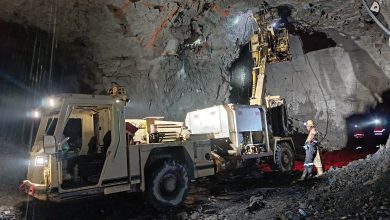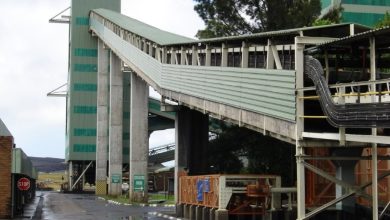
Women from the ‘world’s most polluted town’ tell their stories
A new report from Action for Southern Africa (ACTSA) and Environment Africa exposes the true scale of the harm caused to 140,000 women and children in Kabwe district, Zambia from lead contamination by Anglo American ‘s historic mining operations.
Launched today at the House of Lords, ‘Life in the world’s most polluted town’ features first-hand accounts from mothers living in Kabwe for the first time, addressing their difficult pregnancies, their children’s daily health struggles and their hopes for justice.
Kabwe mothers tell their stories
Lead poisoning can severely harm the health of pregnant women and children, causing deaths and injuries including brain damage, developmental disabilities, organ damage and behavioural problems. While there is no ‘safe’ level of lead in blood, studies have found that more than 95% of children in Kabwe villages close to the former mine exceed the WHO safety threshold of 5 micrograms of lead per decilitre of blood.
Loveness is a mother of two children aged 3 and 6, whose rising blood lead levels measure 50 and 56 µg/dl respectively. Living in Makululu, she has been advised not to allow her children to play in the soil, and to wash all the bedding and the children’s clothes at least every three days to avoid lead poisoning. She says, “It is not easy to stop children from playing in the soil – even after you bathe them and tell them not to play in the soil, they still go back.”
Precious,14 struggles to concentrate at school, and has poor health – with constant flu, nosebleeds, low body weight and poor appetite. Her mother Mary says, “It’s very worrying when I think about her future seeing that she is a girl child and without a good education she might end up on the streets.”
Exposure to lead poisoning is also multi-generational, with lead stored in a mother’s bones passed on to children during pregnancy. Charity, who used to sell cakes at the mine, experienced anaemia when pregnant with her son. Now 11, he coughs constantly and complains of stomach pains. She says he is very forgetful, “Sometimes when I send him to buy something from the nearby shop he would forget where home is when coming back.”
Bertha Musonda explains the difficulties of growing food in the contaminated earth. “Growing crops is hard here in Makululu. When I tried to make my own small vegetable garden the crops did not do well – they were pale and stunted. Because of that I stopped growing crops. It’s a waste of water which is already scarce.”
A call for accountability
Despite evidence that Anglo American was aware, by 1970, of widespread lead poisoning and lead pollution that had been caused by its operations, Anglo American failed to implement remediation measures recommended by international experts.
“The mothers who shared their stories for this report are just a handful of the thousands of women living with the toxic waste from Kabwe’s mining past. That they are forced to live in fear for their children’s health and future is plainly wrong. The contamination in this toxic town has its roots in a colonial extraction of resources which put the rights of local communities far below the pursuit of profit – it’s long past time Anglo American fix this injustice.”
- Tricia Sibbons, Director, ACTSA
Next week, South Africa’s Supreme Court of Appeal will hear an appeal to certify a class action on behalf of the 140,000 women and children affected by lead poisoning in Kabwe, following an earlier dismissal in 2023.
This appeal is the victims’ only viable option to seek access to justice. In the five years where the women and children of Kabwe have waited for clarity on whether the class action will proceed, they have continued to suffer the consequences of exposure to lead.
” Environment Africa Zambia challenges the private sector to acknowledge its role in this environmental disaster and take immediate action to rectify the harm caused by their operations on women and children. We also call upon the Zambian government to ensure justice for the people of Kabwe, who have suffered for far too long, and to hold the private sector accountable for their actions.”
- Namo Chuma, Director, Environment Africa Zambia
Civil society is calling for Anglo American to take responsibility for its major role in Kabwe’s lead poisoning and contamination and for the UK and Zambian governments to hold corporations such as Anglo American accountable to prevent future harm. In October 2024, 26 organisations sent an open letter to Anglo American’s London HQ, calling on the company to honour its publicly stated commitment to contribute to remediation where it has impacted human rights.
Photo credit: Creative Commons Attribution-Share Alike 4.0 International






